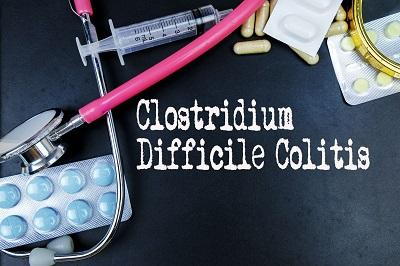C. difficile (Clostridium difficile) is an infection that should be talked about more often than it is despite the fact that it infects half a million Americans each year. While C. diff bacteria can be found within the gut of healthy individuals the healthy gut bacteria work to keep the potentially harmful bacteria in check. C. diff spores  can be found in our environment through the air we breathe, or even the clothes on our back or the foods we consume. This is usually how we end up with C. diff in our guts.
can be found in our environment through the air we breathe, or even the clothes on our back or the foods we consume. This is usually how we end up with C. diff in our guts.
However, sometimes circumstances arise in which C. diff bacteria are able to multiply within the gut. This most often occurs in someone who is taking antibiotics because while antibiotics are being used to fight an infection it can also kill off some of the healthy bacteria in our gut.
Unfortunately, C. diff bacteria are resistant to many kinds of antibiotics, giving it free range to thrive and multiply quickly within the gut. These bacteria, particularly in larger numbers, can also produce toxins. It’s usually the toxins themselves that lead to symptoms such as diarrhea, stomach cramps, nausea, and fever.
C. diff infections can range from mild to severe. In milder cases, patients may liken their symptoms to an infection within the stomach (also known as gastroenteritis). These symptoms may be mild and self-limiting, lasting anywhere from a couple of days to multiple weeks. Usually, medication or treatment isn’t needed in order to treat the infection.
However, those dealing with severe diarrhea, blood in the stool, severe abdominal pain, fever, and dehydration should seek the care of a gastroenterologist as soon as possible. While these symptoms can be indicative of several different gastrointestinal issues, if you suspect that you might have a C. diff infection it’s important that you seek immediate medical treatment.
Since most people have C. diff within their gut, if it isn’t causing any issues then no treatment is necessary. As we mentioned before, those dealing with minor symptoms may be able to let the issue run its course. Those with severe infections may need to be hospitalized. If you are still taking the antibiotics that may have caused this problem then you will most likely need to stop taking it so that the healthy gut bacteria have a chance of returning and making the gut healthier.
Those with severe diarrhea or colitis (inflammation of the colon) may be prescribed very specific antibiotics known to kill the C. diff bacteria. In the meantime, make sure you are drinking enough water and fluids to keep your body hydrated. If diarrhea is severe, your doctor may need to give you fluids and nutrients through an IV.
Luckily, most people dealing with this infection will be able to fully recover, even if they don’t get treatment; however, those who are older or have a weak immune system should seek medical attention as soon as possible if they suspect an infection. While symptoms can be unpleasant, they will usually go away in a few weeks.
